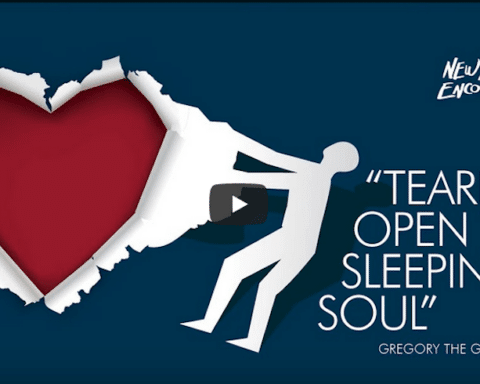In a recent discussion of the potential benefits and dangers of artificial intelligence, a friend expressed that those developing such technologies were “playing God.” At this point everyone nodded solemnly. No one needed to say that this was a bad thing.
But what exactly is playing God?
While we should not be naïve about the potential dark side of technology, honesty demands we recognize that technical progress has radically improved all of our lives. My wife and I have seven children. Nothing drives this point home for me more than visiting an old section of a cemetery and seeing a family headstone with half a dozen or more names of children who, victims of some plague or other, didn’t live to see their 10th birthdays.
Because of developments like vaccines and modern sewage disposal and treatment, we can reasonably expect all of our children to reach adulthood. That was not true for most of human history. Indeed, our first child was born by emergency C-section. In another time and place, both mother and child could easily have been lost, making the question of the other six moot. Almost no one expresses concern that these technological advances are “playing God.”
It might be more accurate to say, rather, that technological advances are our “playing humanity.” When Adam and Eve were given stewardship over the earth, this included developing the remarkable potential that God built into creation and then offering it back to God in worship. This is poignantly captured in the liturgy when the priest offers “fruit of the vine and work of human hands.”
Technology is part of God’s plan
God gives wheat and grapes, but we humans breed them selectively, plant them, harvest them, and process them in order to make the bread and wine that can be offered in the Eucharist. The final transformation here, from bread and wine into the body and blood of Christ, takes up and fulfills all the other transformations along the way. Human culture and technology, rightly understood and rightly offered, are part of the redemption of creation.
In Gaudium et Spes, the fathers of Vatican II taught that, “far from thinking that works produced by man’s own talent and energy are in opposition to God’s power, and that the rational creature exists as a kind of rival to the Creator, Christians are convinced that the triumphs of the human race are a sign of God’s grace and the flowering of His own mysterious design” (No. 34).
So, we should be careful not to immediately dismiss or denigrate new technologies under the rubric of “playing God.” Indeed, many Catholics are surprised to learn just how nuanced the Church’s approach to something like gene therapy is. Rather than a wholesale condemnation, which many might expect, the Church (see, especially, Dignitas Personae, Nos. 25-27) offers a balanced assessment of its risks and potentials, recommends caution and more study, and only definitively rules out forms that, due to current technical limitations, involve other evils such as in vitro fertilization.
Like artificial intelligence, gene therapies have great potential for good and for ill. Neither is evil in itself. And so, from a Catholic perspective, “playing God” cannot simply mean developing powerful technology. On the other hand, there is a very legitimate concern behind the use of the phrase “playing God.” It is not so much about the nature of the technology we create, but about the nature of our relationship with that technology.
When we deny reality, technology becomes demonic
In his recent book “The Perils of Perfection,” Catholic philosopher Joseph Vukov writes that, “Playing God does not, therefore, consist in meddling with things we shouldn’t. It rather consists in occupying a role we cannot fill. It consists in pretending to be something we are not.”
In a strange paradox, it turns out that the moral danger in our relationship with science and technology is not very different from the moral danger of magic and superstition. In both cases, it is a striving for power that is not rightly one’s own that is the corrupting factor. One can sell one’s soul to the devil in a dark wood under a full moon, or in the lab.
It is easy for contemporary people to believe in the myth of salvation by technology. Because of technology’s undeniable real-world impact for the good, we can easily imagine that all of the world’s problems might be susceptible to technological solutions. But technology is always morally ambiguous because it is we morally ambiguous humans who use it.
As Pope Benedict XVI warned in Caritas in Veritate, “Produced through human creativity as a tool of personal freedom, technology can be understood as a manifestation of absolute freedom, the freedom that seeks to prescind from the limits inherent in things” (No. 70).
When our fascination with technology leads us to overlook or deny the nature of reality, and particularly the reality of our own role within creation — stewards and subcreators, not gods — technology becomes demonic. Demons, remember, were not created evil. They are angels — beings of immense power and potential for good – who have fallen through a refusal to accept their role.





